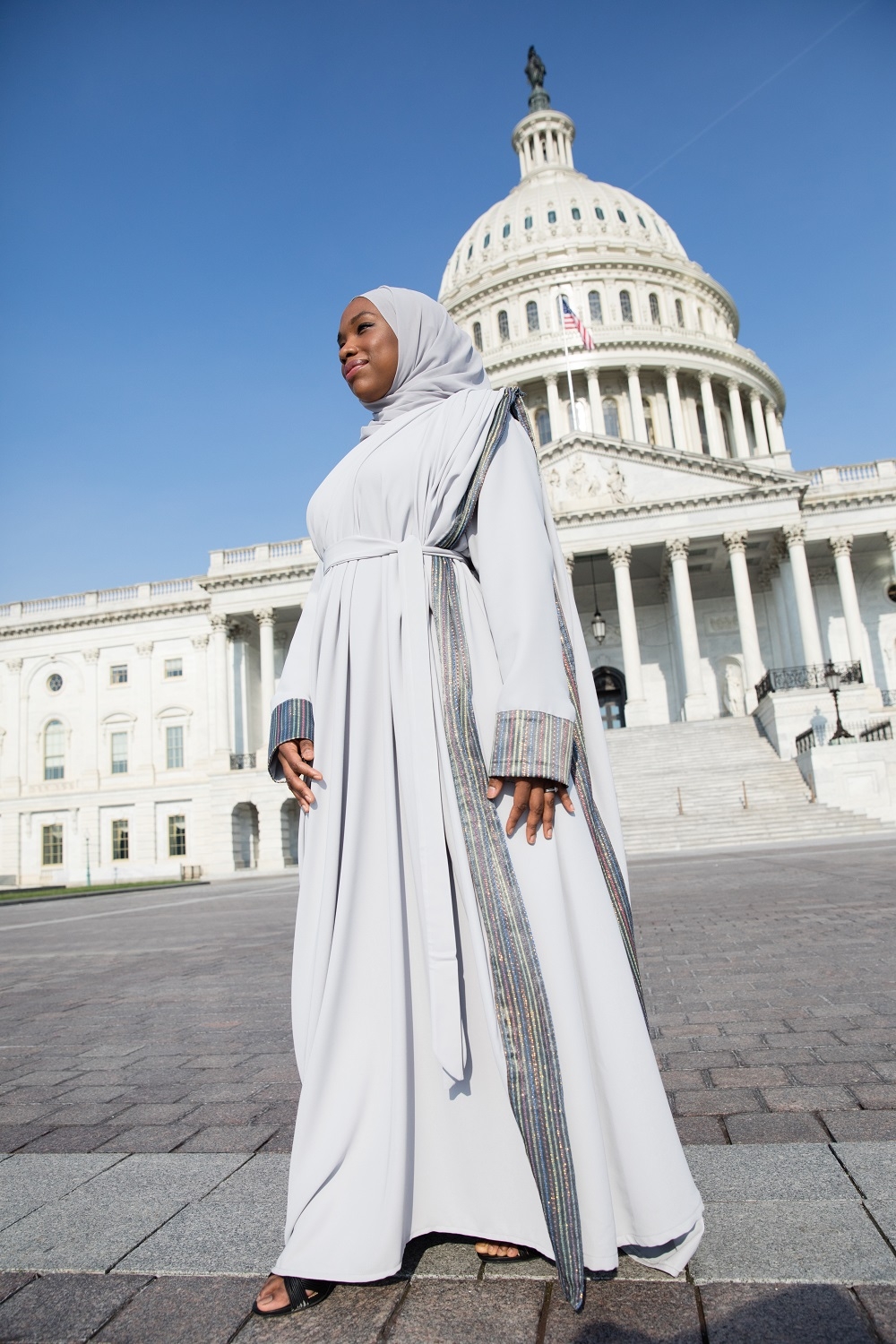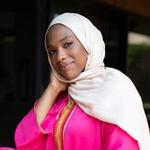How 9/11 and Anti-Muslim Rhetoric Taught Me to be Unapologetic
Faith
|
Sep 22, 2021
|
4 MIN READ

The author standing in front of the Capitol in Washington, D.C.
This article is part of a special series exploring our stories as visibly Muslim women in the last two post-9/11 decades.
One word comes to mind when I think how I felt on September 11, 2001 – confused. I was 14 years old when the principal of the small, all-girls Islamic school I attended made an urgent announcement over the intercom that all students should report to the basement immediately. Of course, all the schoolgirls hustled to the basement with anticipation for the unexpected assembly.
It was Spirit Week, and each day had been a different silly theme to get the girls hyped for the school year. On September 11 in 2001, it was “Crazy Hair/Hat/Hijab” day. If you can picture it, the announcement of the devastating terrorist attacks was delivered to a crowd of Muslim girls with their hair in wacky styles, topped off with zany hats and creative hijab styles.
The upbeat mood of the day quickly drained from all of us, as pale-faced teachers, some in tears, instructed us to grab all our belongings and call our parents for early dismissal due to safety concerns.
I was confused. What did the incidents in New York and Washington, D.C. have to do with us in the middle of the Chicago suburbs?
I rolled my eyes and pouted – typical of adults to overreact and take away our fun. My father picked me up, and I stayed at his workplace, a mechanic garage, for the rest of the day. But as the automotive fumes filled the air of the garage, the strange reality of what really happened that day filled my consciousness. As the words “Islamist terrorists” echoed repeatedly on the television in the garage waiting room and analysts reiterated that the violent extremism we were witnessing that day had so much to do with my own religion, it dawned on me why my school had to send us home to safety.
No matter how far removed I felt from the attacks that day, I would have to fight to have it truly separated from my identity as a Muslim.

A throwback high school graduation picture of the author.
My school stayed closed for a week or so after 9/11, and the community fell victim to several hate crimes. Our community in Bridgeview, IL is home to a flourishing population of Palestinians, some of whom originally came to the area and started families, built homes and established businesses, schools and mosques after the Nakba of 1948. It was a safe space for a new neighborhood after so much turmoil.
I believe that it’s this history, relatively fresh with trauma, that made this community where I lived perceive exactly what 9/11 would mean for the Muslims – not only in Bridgeview, but in America at large. As a young Black girl, daughter of immigrants from Belize, I did not share that wound, and so I failed to put 9/11 in the proper context.
I did not realize that separating myself from the attacks of 911 wouldn’t be easy. There would be hate crimes, unwarranted surveillance, racial profiling and an overall fight to hold onto Islam for decades to come.
As a Black woman, there is no removing my skin color to make the world see me differently; as a Muslim woman I see my hijab in a similar way.
When I returned to school, I heard the stories from my classmates. Women were removing their hijabs out of fear of being assaulted, our local mosque had its windows shattered, and anti-Muslim protesters had come face-to-face with my friends and threatened their lives. No one went to the mosque for a while, and there were police at our school now.
Back then, even at 14, I was very confident in my outward appearance as a Muslim – I wore abayas and long skirts, and a full-coverage style of hijab even back then. There was no way that 9/11 was going to change that. I felt angry at the grown women who would rather mask their identities as Muslims by swapping their khimars for baseball caps. Back then, I felt betrayed – while the women I looked up to hid behind their bandannas, I was young, yet boldly uncompromising. Couldn’t they simply fear God more than society?

The author in Washington, D.C.
In my youth, I did not understand the complexities of human behavior and how trauma plays a major role in that, how those women coped with trauma was not for me to judge. How heavily 9/11 weighed, and continues to weigh, on the shoulders of hijabi Muslim women is a burden I could not begin to comprehend back then.
Nonetheless, I’m immensely proud of that 14-year-old who never considered, even momentarily, removing her hijab. Assimilation and acceptability politics never attracted me, especially if it meant sacrificing precious parts of me to be more acceptable to those who challenged the integrity of my beautiful religion.
As a Black woman, there is no removing my skin color to make the world see me differently; as a Muslim woman I see my hijab in a similar way. There is no need for me to remove my hijab to be more acceptable. My 14-year-old self taught me that. She built the foundation of the unapologetic Muslim woman I am today. I chose to be visible back then, and every day since then, I’ve thankfully made the same choice.
Subscribe to be the first to know about new product releases, styling ideas and more.
What products are you interested in?

